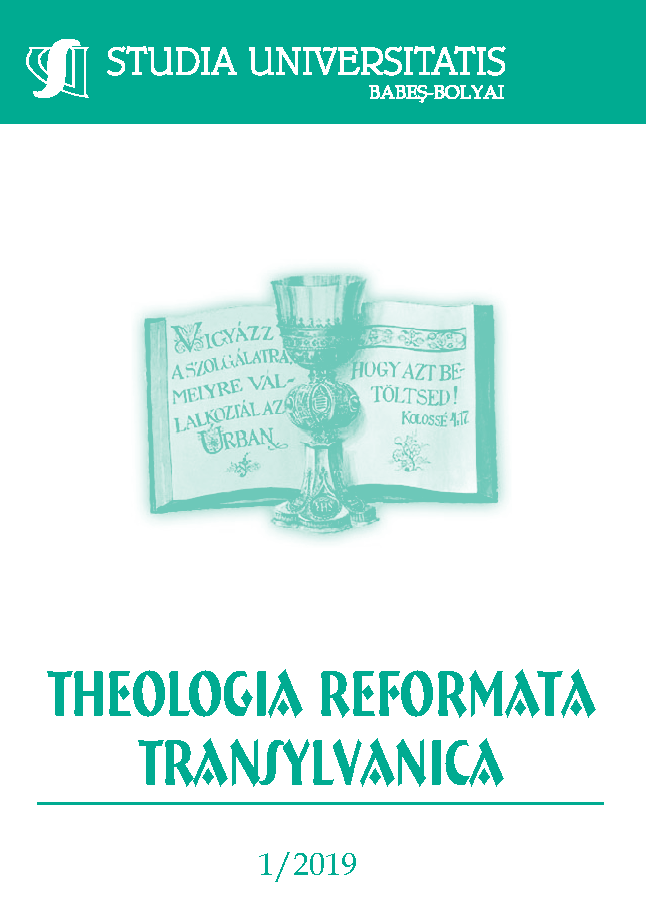A Húsvét Homiletikuma
DOI:
https://doi.org/10.24193/subbtref.64.1.10Keywords:
Saviour, Easter, triple benefit of the resurrection, homileticsAbstract
The Homiletics of Easter.
The death of Jesus was the sacrifice of the obedient and loving Son until death. Good Friday and Easter are inseparable. The cross and the resurrection together make Jesus the Christ and the Saviour. The sacrifice of the cross is linked to the open tomb of our Lord. And this interconnection can invite us to rejoice. If I understand the significance of Easter, I can also believe in its reality. The resurrection must not only be taught, but also believed. Otherwise, my creed of the resurrection is sacrificium intellectus (the victim of reason), an empty, arbitrary, and contradictory statement. The triple benefit of the resurrection of Christ is referred to in the 45th question–answer of the Heidelberg Catechism as the three time planes: the past, the present, and the future showing the threefold consolation of the resurrection. The first time plane recalls the memorable past, the first Easter, when the Prince of Life came out of the tomb of Joseph Arimathia. The second time plane points to the present. Christ has overcome the power of death to learn to walk in new life right now. Everything that must happen to us must be under the power of the living Jesus Christ. The third time plane is the Future: Christ overcame the power of death, so there will be a resurrection for us. God brought life to triumph with the resurrection of Christ. His resurrection is the keystone of the glorious resurrection that will come upon Christ`s return. The Resurrection of Jesus Christ is a guarantee of the renewal of the whole created world. The relationship between the present world and the “new heavens and new earth” (2 Peter 3,13) is characterized by continuity and discontinuity at the same time: we are waiting for the ultimate salvation that we have already “tasted” and which will be quite different from what we can think or imagine.
References
BARTH, Karl: Kirchliche Dogmatik IV/1.
BARTH, Karl: Kirchliche Dogmatik IV/2.
BUKOWSKI, Peter: Predigt wahrnehmen, Neukirchen, 1990.
JOÓ Sándor: Húsvét homiletikuma, Debrecen, 1942.
JÜNGEL, Eberhard: Igazságból való élet – Isten cselekvése és az emberi tett, (ford. Básti Péter) Másik oldal, Felvidéki Teológus Fórum, 1997. február 27., 3. szám. 19.
PAP Ferenc, in: Kálvinista Szemle, (XIV.) 1933/17.
VAN DEN END, G.: Zondag 17, in: J.H. van de Bank et al. (red.): Kennen en vertrouwen: handreiking bij de prediking van de Heidelbergse Catechismus, Boekencentrum, Zoe-termeer, 1993.
VICTOR János: Megigazulás, megszentelődés, megdicsőülés, in: Az Út, 1951/41. 2.
Downloads
Published
How to Cite
Issue
Section
License
Copyright (c) 2019 Studia Universitatis Babeș-Bolyai Theologia Reformata Transylvanica

This work is licensed under a Creative Commons Attribution-NonCommercial-NoDerivatives 4.0 International License.



